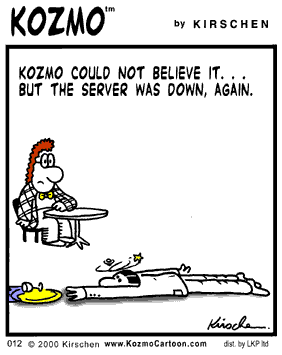I award 10 “I Thought a Think Points” to any of you who get that.
I got my new issue of the
Harvard Education Letter in the mail a couple of days ago, and the back page article by Richard Elmore is an interesting one. He argues that nearly three thousand hours of instructional time is lost over the course of a student’s school career because of inefficiencies in how the school day and year are structured. Testing takes a hit because it’s not new instructional time; he similarly criticizes the “end-of-year letdown” for needlessly letting contact time go to waste.
He’s right, the time is wasted.
He’s hopeless, because there’s not a whole lot that can be done about the situation.
My kids start showing up in the morning at about 8:45; we walk out to the busses at 3:15. That’s 6.5 hours I have to use, but there’s an hour off of the top for the midday lunch and recess time. You can also assume 15 minutes at the beginning and end of the day to either get the kids settled or get them ready to go. We typically take about a 15 minute break every morning, because I have no preps in the morning and they need the chance to cut loose. That’s 1 hour and 45 minutes of time gone, leaving 4:45 for teaching.
Except that I have an average of 45 minutes a day of prep time, so that knocks the total time down to four hours a day for teaching time. An educated guess would be that I lose another half hour a day through things like walking the kids to their specialist classes, transitioning between activities, and the like, so in a 6.5 hour day I really only have 3 hours of instructional time. Troubling? Perhaps, but it’s the way it is.
So how do we make more instructional time? Some schools are cutting recess and the arts, which is a profound mistake on either end, but I can understand the instinct. At my own school we’ve made a change from offering band AND music to 5th and 6th graders, to giving them a choice between band OR music. They still get something, just not as much as they used to. They were losing two hours a week of instruction because not every kid was in band, but you couldn’t teach new skills solely to the kids who were left behind when the band kids were gone, so it was wasted time.
But if you look at the time lost to processes, there really isn’t a way to get that back. My kids are going to take 15 minutes to get ready to go—that’s just the way it is with 6 year olds. At the beginning of the day the kids trickle in during a 20-minute window instead of all showing up at the same time, and there’s nothing I can do as a classroom teacher to fix that problem, either. I could try to shore up the 30 minutes of time that we lose over the course of the day during our transitions, but there really is only so much I can do there, too.
Maybe, just maybe, we need to think about extending the school day. It’s what they do in
KIPP and a bunch of other charter schools, and it’s certainly what some kids need. This month’s issue of
District Administration magazine has an article about the idea of
IEPs for every child; imagine what we could do with all the kids from the highest to the lowest with one extra hour a day.
It can’t happen, because of finances.
It can’t happen, because of the contract.
It can’t happen, because of the kids.
It can’t happen, because of the parents.
But if it could....
Labels: school day, time
Read more here, if any.












